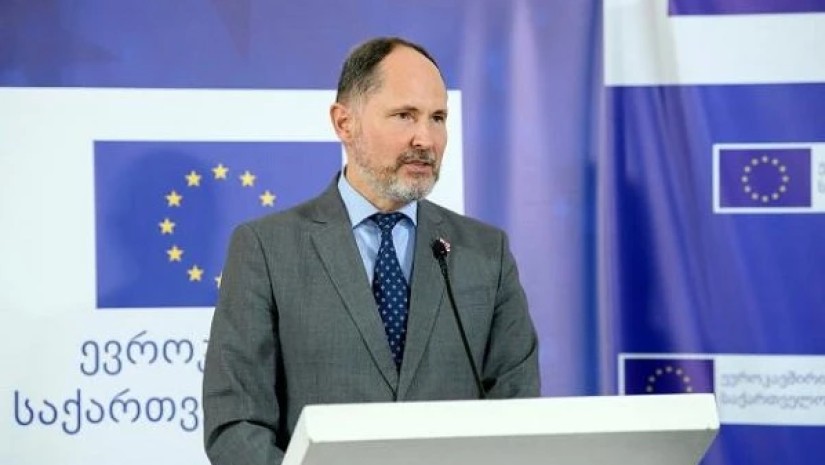EU Ambassador to Georgia Pawel Herczynski this week visited Nadarbazevi and Kitsnisi villages in the Shida Kartli region, meeting with farmers who have benefited from FAO activities supported by the EU in the region. Cereal and dairy farmers, as well as beekeepers, had the opportunity to share their experiences with Ambassador Herczynski and explain how, within the ENPARD rural development program, funded by the EU and Sweden, the FAO has helped them toward improved food security, food safety, and economic development.
The current phase of the program has helped over 200 cereal farmers plant 1,500 hectares of land in Georgia. As a result, improved access to no-till farming equipment has decreased production costs. Importantly, their fields have become more resilient to environmental risk factors and climate change. FAO has also trained over 2,000 farmers in food safety standards.
“I am delighted that the European Union, together with the FAO, is improving Georgian agricultural techniques and methods to protect the environment and to help Georgian farmers to be more profitable,” said Ambassador Herczynski. “The ENPARD project has been an important contributor to the country’s agricultural development. We are glad to be working with farmers, food businesses, and state institutions to collaboratively strive toward more sustainable and cost-effective agriculture in Georgia.”
Aiming to reduce rural poverty, ENPARD has been implemented since 2013. The Programme started by supporting the development of national agriculture potential. Afterward, it concentrated on creating economic opportunities for rural populations in Georgia. Since 2021, the Programme has also been working on improving food safety in the country, with additional support from Sweden, and with the FAO and the Czech Development Agency as the main implementers of this food safety component.
















